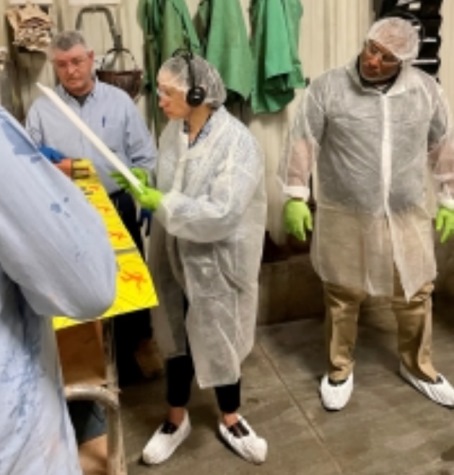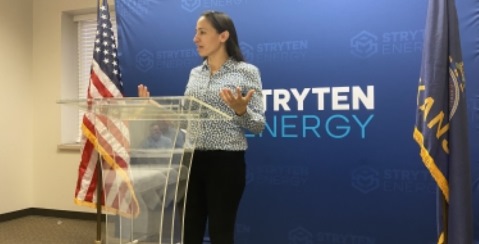Weaknesses exposed by COVID-19 pandemic focus of bipartisan innovation bill
by Tim Carpenter, Kansas Reflector
Topeka — U.S. Sen. Jerry Moran and U.S. Rep. Sharice Davids offered input Thursday into development of a compromise bill designed to improve domestic manufacturing and the nation’s supply chain that were exposed as competitively deficient during the COVID-19 pandemic.
Sen. Moran, a Republican, and Rep. Davids, a Democrat, were appointed to the Senate and House negotiating committee working on a combined version of the Bipartisan Innovation Act. An agreement resolving differences in the House and Senate versions of the bill, if approved by both chambers, would be forwarded to President Joe Biden.
The legislation’s objective has been to come to terms with shortcomings in U.S. supply-chain resiliency and domestic manufacturing limitations — semiconductors, for example. One aim of Congress would be lowing costs in the wake of record-setting inflation. In addition, lawmakers feel pressure to grapple with growth in China’s economic and technological power, fuel U.S. research and development and reinforcement U.S. workforce programs.
In Sen. Moran’s remarks to the conference committee in Washington, D.C., the senator said the package ought to feature improved support of so-called STEM fields of science, technology, engineering and math. It should to be designed to promote entrepreneurial business activity, he said.
“This committee is tasked with making certain our country is out-competing adversarial nations, including China, which we can do,” he said.
Sen. Moran recommended the final version of the bill include provisions to solidify federal funding of NASA. He said Congress had pieced together financial backing of NASA missions for several years without passage of formal authorization legislation.
“When you can present a bipartisan authorization followed up with the funding of programs, it sends a strong signal to the agency, industry and our global partners that we remain committed in accomplishing our stated missions. This is especially critical as our adversaries continue to advance within the space domain,” Sen. Moran said.
Rep. Davids, in remarks to colleagues on the Senate-House conference committee, said she’d spoken with dozens of Kansas business owners, workers, students and entrepreneurs about the federal manufacturing and supply chain legislation.
“I’ve been on the factory floor with welders who make the railroads that get goods from ship to shelf across our country,” the 3rd District representative said. “I’ve seen firsthand how a Kansas battery manufacturer recycles their materials through the production process to reduce waste and improve efficiency. I’ve met with union autoworkers who were off the line for seven months last year because the chip shortage idled a GM plant in my district.”
“I’ve been out in the community because I want to make sure that during this negotiation, I’m fighting for what our businesses and workers really need,” Rep. Davids said.
She said the COVID-19 pandemic caused global disruption in the international supply chain that escalated prices paid by large and small businesses and consumers.
“But I have to tell you: This isn’t new,” Rep. Davids said. “The reality is we’ve been reliant on goods made in other countries for far too long, and Kansans are paying the price. When we focus on domestic manufacturing, it will not only bring jobs back and boost our economy, it will help lower costs across the board and reduce inflation.”
She said the United States possessed the “innovation, the grit and the talent” to compete with countries like China, but the United States had relied on goods made in other countries for too long. She said focus of the House-Senate agreement had to be investment in American manufacturing and workers, especially those engaged in small businesses.
Kansas Reflector stories, www.kansasreflector.com, may be republished online or in print under Creative Commons license CC BY-NC-ND 4.0.
See more at https://kansasreflector.com/2022/05/13/davids-moran-taking-part-in-u-s-supply-chain-domestic-manufacturing-reform-negotiations/


